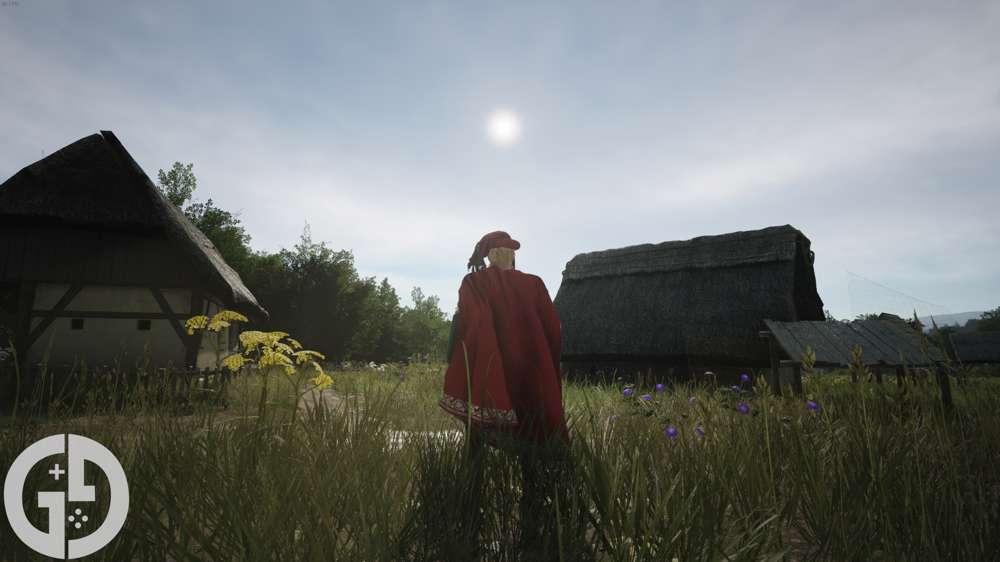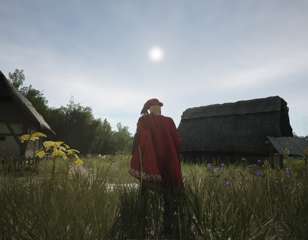Manor Lords review: Predicting a strong harvest
Manor Lords is finally releasing into early access, and I got the chance to check it out and see how the highly anticipated medieval city builder stacks up.

Manor Lords offers a fantastic foundation for the game to grow in early access, while also being a brilliant game in its own right already. It approaches the complexities of city building in a medieval context with ease, giving players many challenges to face as they build up their settlements from just a tent to cities that sprawl across regions.
Furthermore, the addition of combat into the mix not only adds additional threats that you'll have to contend with, but another layer to consider as you expand. Choosing between weapon or food production in the height of winter as an army approaches can make or break even the most functioning city if you choose the wrong path.
Images via Slavic Magic
Platform(s)
Windows, Xbox One, Xbox Series X/S
Released
26/04/2024
Developer
Slavic Magic
Genre
City-Builder
Publisher
Hooded Horse
Engine
Unreal Engine 5
Multiplayer
No
I'm certainly not alone in my excitement for Manor Lords, as it has surpassed over three million wishlists on Steam prior to its release - which is staggering for a solo-developed game.
It's not hard to see why it's drawn so much interest though - especially in the PC market - as it combines city building with strategic combat in a medieval setting, which feels like it's a roguelike element or deck builder away from a PC gamer's favourite combo.
Thankfully, despite the weight of expectations, Manor Lords does more than enough to back up the fire underneath its feet, creating an incredibly engaging experience even at the start of its early access journey. Don't go in expecting a complete experience here, but the fields certainly spell the story of a strong harvest to come.
GGRecon Verdict
Manor Lords offers a fantastic foundation for the game to grow in early access, while also being a brilliant game in its own right already. It approaches the complexities of city building in a medieval context with ease, giving players many challenges to face as they build up their settlements from just a tent to cities that sprawl across regions.
Furthermore, the addition of combat into the mix not only adds additional threats that you'll have to contend with, but another layer to consider as you expand. Choosing between weapon or food production in the height of winter as an army approaches can make or break even the most functioning city if you choose the wrong path.
Harsh medieval life
You'll start Manor Lords with a small encampment of five families and just a few supplies - although, unlike most city builders, this moment doesn't shine the light of opportunity but instead emphasises the start of your race against time.
Your supplies will run out, your food stocks will run dry, and your population will either die or abandon you for literally greener pastures - that's the unfortunate harsh reality of medieval life - but it's up to you to delay that inevitability for as long as possible and hopefully build something meaningful in the meantime.

There are currently three different 'scenarios' to choose between before you even get to your first camp though, each with a different end goal and conditions that you can freely customise. Starting out I went for the scenario that prioritises growth and almost acts as the game's 'creative' mode.
You'll face no outside threats in this mode, and instead have to deal only with the harsh reality of nature itself - which is certainly not something to underestimate. This gave me the chance to get to grips with many of Manor Lords' complex systems without the threat of bandits or an outside army invading my growing settlement.
I mentioned in my preview but I very quickly made quite a few mistakes; I nearly ran out of timber without any means to gain more, I took too long to build a Granary, meaning my food stocks got soaked in the rain, and I came just one month away from total collapse as my efforts to get more food weren't as successful - or as quick - as I might have hoped.
Yet, despite what would have typically been an abrasive experience that would have turned me off of the game, it almost made it more fun. The sheer panic when I subsequently realised each of these mistakes only spurred me on to keep playing - and ensured that I didn't make them ever again.
The tutorials present throughout the game are also excellent at letting you know what's going on without holding your hand too much and taking away the risk - although the glossary of sorts can sometimes leave you at a dead end when you're searching for specific materials or buildings.
Starting over again
While I'd invested plenty of time into my first save, I took the plunge and started a completely new one - this time equipped with the knowledge of my mistakes, and also with combat enabled.
As expected, I was able to quickly match and even surpass the progress of my original settlement - even with the impending threat of a bandit raid in a year's time. What this additional save showed, however, was the flexibility of approaches that you can take.

Where farming was the main source of my attention at first, I prioritised both foraging and hunting in this new start and only built my first farmhouse when I started to need materials like linen and barley.
This flexibility is easily enabled by the random nature of the world when you start a new save. While it might seem similar, the resources available to you are completely different each time, and it can make your approach wildly different and switch up your priorities massively.
It wouldn't surprise me if people spent hundreds of hours in the one save, expanding their power until every region on the map is consumed - but I could equally see some players finding their fun in countless new saves, overpowering the initial challenges of expansion and growth.
Don't be fooled into thinking that things get easier beyond the initial year or two though, as there are always challenges that will test your resolve, even when you think you're in control. You'll have to constantly balance growth to resources, where an increased population will let you do more, and in turn, get more supplies, but those people will need food to eat and fuel to keep them warm - and it's easy to grow faster than you can support if you're not careful.

Furthermore, one unfortunate fire or an expected raid from a neighbouring army can spell disaster for your settlement, so you'll always need to be on your guard for incoming threats. One instance saw me be a bit too cocky and challenge a group of bandits in a neighbouring camp, only for a small army to attack from the other side of my settlement, leaving me with little in the way of defence.
Fighting your own battles
Speaking of combat, I was surprised at how well implemented it is in Manor Lords for a game that is largely a city builder first and foremost. Of course, it's not going to be as complex or fleshed out as something like Mount & Blade or an RTS, especially in the infancy of its early access period, but it's still very enjoyable and blends brilliantly with the balance found in the other core mechanics.
One of the biggest hurdles you'll likely encounter is building up a competent army in the first place - as soldiers not only need to be obtained as your population grows, but they need to be armed too.
Balancing this alongside all of the other required work was a wonderful challenge for me, and even turned into an effective form of trade as my production superseded what my army could carry.

Once you're in battle though you'll be able to enact a number of different tactical commands to your troops and line them up in formation too. I found this to be relatively simple but still quite tricky to master, as arranging your different garrisons in an effective manner did prove to be the difference maker at times.
I'm definitely excited to see how larger-scale warfare plays out - especially when it comes to protecting larger towns in conjunction with a custom-built castle, as there's certainly that Helm's Deep-esque ideal of protecting your own from invasion against the odds.
Early days
Perhaps one of the biggest things to consider with Manor Lords is its early access status, and how much that affects the overall quality of the game. Some EA titles can feel restrictive in their progress, and it's often not clear how much is left to be added in future updates.
However, this could not be further from the case with Manor Lords - as the game shows not only a great foundation for updates along the line but also clear indications of where new additions will be added and expanded upon.

Policies, for example, look fairly barebones at the current time of writing, yet there is visual space for expansion that I know will be filled out as the game progresses, and the same is true for other areas like Development nodes and even buildings.
Much like the settlements you'll be building yourself, Manor Lords is definitely a work in progress - but it doesn't shy away from that at all and uses the early access form to the best of its ability, invoking a sense of potential and optimism within its future.
Moreover, while everyone's experience will be different, I only encountered a handful of bugs in my time playing the game, and the most they amounted to was warnings staying on the screen a little bit too long. Performance was also great across the board - even at 1440p on my less-than-mid-range PC, which has struggled with certain other city builders in the past.
The Verdict
Manor Lords is undoubtedly a work in progress, but everything that I've played so far has not only given me a wonderful experience but shows fantastic signs of progress and a future that certainly looks bright.
It brilliantly navigates a fine line between challenge and frustration as the tribulations of medieval life often get in the way of your grand ideas, and those unforeseen challenges often are the cause of the game's most memorable moments.
Furthermore, the practicality of adding real-time strategic combat to an already complex city-building core had me cautiously intrigued, but the game pulls it off with ease. It might not have the flexibility (at least, right now) of titles dedicated to their combat mechanics, but adding it alongside the existing core of the game and integrating it so seamlessly is definitely something to marvel at.
4.5/5
Reviewed on PC. Code provided by the publisher.
Comments

